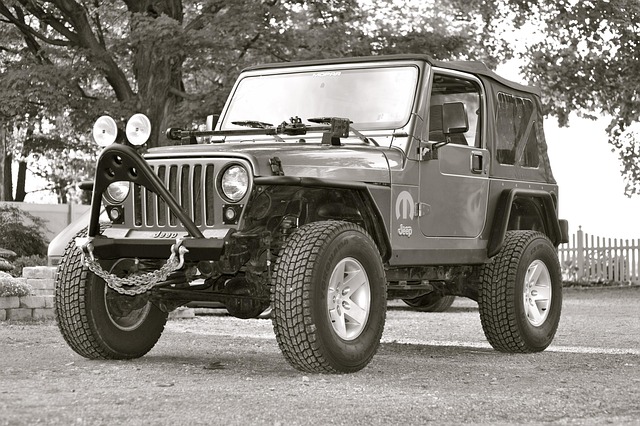Fleet truck owners in Brownsville should prioritize understanding brake caliper types (hydraulic, pneumatic, electric) based on their vehicles' weight and stopping needs to ensure safety and efficiency. Regular maintenance, including visual inspections, proper alignment, and lubrication, is crucial for extending caliper lifespan. Experts in fleet truck transmission repair Brownsville offer swift solutions, addressing issues from worn pads to hydraulic malfunctions, to keep operations running smoothly. Choosing the right calipers for vehicle weight, driving conditions, and transmission type is key to optimizing performance and preventing costly repairs.
“Brake calipers are a critical component for maintaining safe and efficient fleet trucks. This comprehensive guide delves into the intricacies of these powerful devices, exploring their function and various types suitable for fleet operations. We also shed light on common issues that might require professional fleet truck transmission repair in Brownsville.
Additionally, discover essential factors to consider when selecting calipers for optimal performance and learn valuable maintenance tips to extend the lifespan of your truck’s brake calipers.”
- Understanding Brake Calipers: Function and Types for Fleet Trucks
- Transmission Repair in Brownsville: When Caliper Issues Arise
- Choosing the Right Calipers: Factors for Optimal Fleet Performance
- Maintenance Tips: Ensuring Longevity of Truck Brake Calipers
Understanding Brake Calipers: Function and Types for Fleet Trucks

Understanding Brake calipers is crucial for maintaining optimal performance in fleet trucks, especially considering the frequent and demanding nature of their operations. Brake calipers are key components in a vehicle’s braking system, responsible for clamping down on the brake pads to slow or stop the truck’s rotation. They come in various types designed for different applications, from heavy-duty haulers to light delivery vehicles. Knowing your fleet’s specific needs is essential when selecting calipers; hydraulic, pneumatic, and electric calipers each offer unique advantages tailored to factors like weight capacity, stopping power requirements, and driver preference. For specialized fleet truck transmission repair in Brownsville, professionals rely on understanding these intricacies to ensure safe and efficient braking for these vital workhorses.
Transmission Repair in Brownsville: When Caliper Issues Arise

In the world of fleet truck maintenance, ensuring smooth operations is paramount. When it comes to addressing caliper issues in Brownsville, professionals specializing in fleet truck transmission repair play a crucial role. These experts are equipped to handle intricate brake caliper problems that can disrupt the efficiency and safety of commercial vehicles.
Brownsville’s reputable transmission repair shops offer specialized services tailored for fleet managers. They understand that downtime for trucks can be costly, so they prioritize quick turnaround times and cost-effective solutions. With their advanced tools and knowledge of modern vehicle systems, they can diagnose caliper problems, whether it’s worn-out pads, damaged pistons, or hydraulic issues. Efficient transmission repair is key to keeping fleets on the road, ensuring the safety of drivers, and maintaining operational consistency in the bustling city of Brownsville.
Choosing the Right Calipers: Factors for Optimal Fleet Performance

When it comes to ensuring optimal fleet performance, selecting the right brake calipers is a crucial step for any truck owner or fleet manager in Brownsville. Several factors must be considered to make an informed choice that aligns with your vehicle’s needs and driving conditions. One key aspect is understanding the unique demands of your fleet, including the typical weight of the trucks, driving patterns (urban vs. highway), and the frequency of braking. For instance, a heavy-duty fleet operating primarily in stop-and-go city traffic may require calipers with superior heat dissipation capabilities to prevent overheating.
Additionally, the type of transmission in your trucks plays a significant role. Different transmissions have distinct brake requirements. Automatic transmissions, for example, often benefit from calipers designed for consistent and precise braking, while manual transmissions might suit calipers that offer better control and modulation. Incorporating these considerations into your selection process will not only enhance safety but also contribute to improved fuel efficiency and reduced maintenance costs in the long run, making it a wise investment for any fleet truck transmission repair service in Brownsville.
Maintenance Tips: Ensuring Longevity of Truck Brake Calipers

Regular maintenance is key to prolonging the lifespan of truck brake calipers, especially for those in fleet operations. In the bustling world of truck transmission repair in Brownsville, a well-maintained braking system can mean the difference between smooth, efficient operations and costly repairs. Here are some essential tips to keep your truck’s brake calipers in top condition:
1. Inspect Regularly: Conduct routine visual and functional inspections. Look for signs of wear, corrosion, or damage. Check for proper alignment and ensure all components are secure. Address any issues promptly to prevent escalation.
2. Lubricate According to Specifications: Proper lubrication is crucial to reduce friction and wear. Follow the manufacturer’s recommendations for lubricant type and application frequency. Using the right lubricant ensures optimal performance and longevity of the calipers, ultimately benefitting fleet operations in Brownsville.
Brake calipers are essential components for maintaining the safety and performance of fleet trucks. By understanding their function, types, and optimal selection, as well as implementing regular maintenance, fleet managers in Brownsville can ensure their vehicles’ braking systems operate reliably, providing a smoother ride and reducing the risk of costly transmission repairs. Investing in high-quality calipers and staying on top of routine maintenance will contribute to the overall longevity of fleet trucks.
